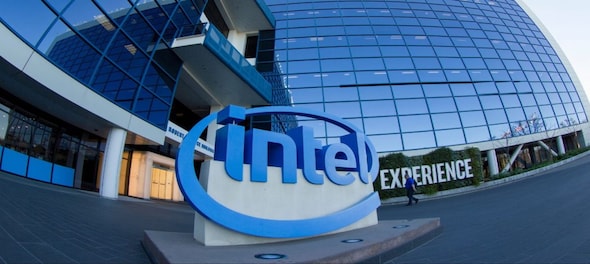
Intel Corp has agreed in principle to build a new manufacturing plant in Israel, part of a push by the US semiconductor giant and its chip peers to diversify their production sources.
The preliminary deal was announced by Israel’s finance ministry and Prime Minister Benjamin Netanyahu on Sunday. Intel confirmed the company’s “intention to expand manufacturing capacity in Israel,” where it is already active, but didn’t specify the terms or provide other details.
The facility will be for wafer fabrication, a segment in which Israel is already one of Intel’s four major providers, according to a person familiar with the plans who wasn’t authorized to speak publicly.
The expansion will further an effort by Intel Chief Executive Officer Pat Gelsinger to locate more manufacturing outside of Asia, which dominates chip production. He’s also striving to restore the chip pioneer’s technological leadership after companies such as Nvidia Corp and Taiwan Semiconductor Manufacturing Co. eclipsed its capabilities.
While Netanyahu put the value of the deal at $25 billion, which he said was the largest foreign investment in Israel and an “expression of confidence” in the nation’s economy, the person familiar said the total included a previous, $10 billion investment announced in 2021.
According to Israeli officials, the project will add thousands of jobs to the almost 12,000 workers now employed by Intel in the country. The new plant — to join an existing one in Kiryat Gat, south of Tel Aviv — is slated to begin operations by 2027 and remain active until at least 2035, the ministry said. As part of the agreement, Intel will pay a 7.5% tax rate in Israel instead of the 5% it pays now.
Sunday’s announcement caps a busy time for the chip industry. Intel on Friday announced a $4.6 billion facility in Wroclaw, Poland. Another US chipmaker, Micron Technology Inc., is close to an agreement to commit at least $1 billion toward setting up a semiconductor packaging factory in India, Bloomberg News reported the same day, citing people familiar with the matter. The development plans highlight the global race to diversify supplies of critical components amid US tensions with China.
Companies are also taking advantage of subsidies from foreign governments eager to make sure the supply of chips in their own territories is safe and attracts jobs. As part of the agreement with Israel, Intel is likely to be eligible for a significant government grant representing 12.8% of its total investment.
The US is doling out roughly $52 billion in incentives as part of the Chips and Science Act passed last year. And Europe is making a similar effort. Intel is set to receive almost $11 billion in subsidies from the German government for a chip manufacturing complex in the eastern part of the country, Bloomberg reported last week.
The company also continues to expand in Leixlip, Ireland, spending an additional 12 billion euros ($13 billion). It plans to double the manufacturing space there to bring so-called Intel 4 process technology to Europe and offer more foundry services — contract production for other companies. Once complete, this expansion will bring Intel’s total investment in Ireland to more than 30 billion euros.
Intel’s Gelsinger is making bold expansion bets at a time when the storied chipmaker is struggling. The personal computer market is mired in a slump, and the company’s peers have pushed into its lucrative data-center turf. Nvidia, whose chips help power artificial intelligence computing, is now the star of the semiconductor industry. After passing Intel in market capitalization in 2020, Nvidia now has a valuation of more than $1 trillion — compared with about $150 billion for Intel.
In Israel, Intel also has been working to complete the acquisition of the country’s Tower Semiconductor Ltd., a deal announced more than a year ago. Intel is counting on that $5.4 billion transaction to help bolster its position in the chip foundry industry — where TSMC dominates.
Intel has been operating in Israel since 1974 and has R&D centers in Haifa, Jerusalem, Yakum and Petah Tikva, as well as an existing factory in Kiryat Gat, which the company calls its “most advanced manufacturing facility.” Intel’s Jerusalem facility is the global development center for Mobileye, its autonomous driving business.
Santa Clara, California-based Intel said its intention to expand “is driven by our commitment to meeting future manufacturing needs and supporting Intel’s IDM 2.0 strategy, and we appreciate the continued support of the Israeli government.”
The strategy, unveiled after Gelsinger took the helm in 2021, was touted as an “evolution of Intel’s integrated device manufacturing model” that would see the company become a provider of foundry capacity in the US and Europe, as well as an expanded use of external foundries for some of its products.
Check out our in-depth Market Coverage, Business News & get real-time Stock Market Updates on CNBC-TV18. Also, Watch our channels CNBC-TV18, CNBC Awaaz and CNBC Bajar Live on-the-go!


Telangana CM violated poll code, defer Rythu Bharosa payment, says Election Commission
May 7, 2024 9:01 PM
Lok Sabha Election 2024: How Indian political parties are leveraging AI
May 7, 2024 6:59 PM

